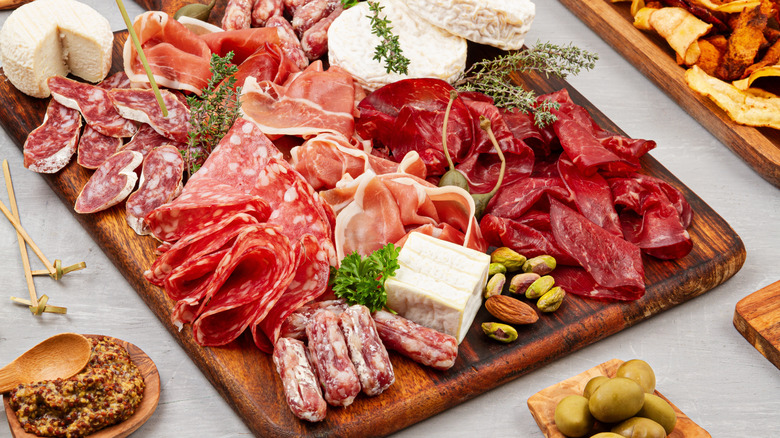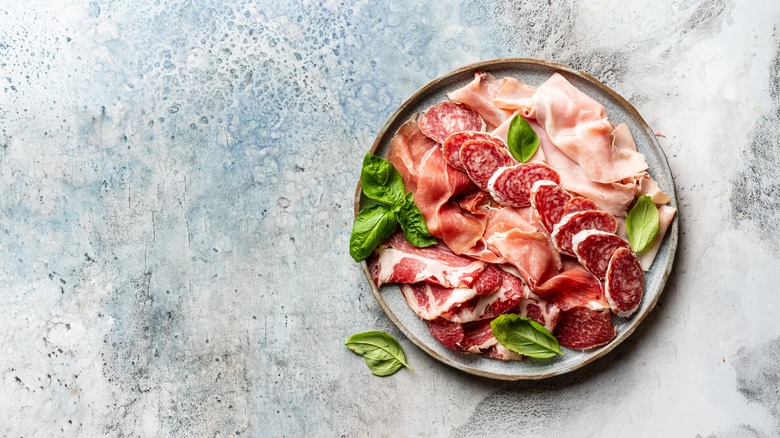What France's Potential Cured Meat Ban Could Mean For Your Charcuterie Board
The debate continues to rage in France around a bill that proposes to ban the addition of nitrites and nitrates to meat. "Ham is a health danger," Richard Ramos, a Member of Parliament (MP) of the Loiret region, stated when he introduced the bill in December 2020. "We know that now. Nitrite salts in charcuterie kill French people" (per The Times).
The drama of that point, however, has been diminished in the month since the bill's presentation. Food Navigator notes that the final bill upon which the French parliament will vote on February 3 has been weighed down with numerous amendments, one of which would introduce adoption periods and schedules for "specific labeling" that extend beyond a year. This also includes waiting for a report on the "risks associated with the ingestion of nitrite additives in matters of public health." Activists who pushed for the ban do not think that the report should be a condition for political action.
The reason why people outside of France may care about this specific food regulation is that the French trade group's charcuterie sector, FICT, is worried that if the ban were instituted, most charcuterie meats would disappear. In practice, the ban would only impact your charcuterie board if you import meats from France.
Why are nitrites and nitrates in charcuterie meats?
As Food Navigator reported, the French charcuterie industry sees the ban an existential threat. However, this might prompt the question of why nitrites and nitrates are in charcuterie meats. According to The Spruce Eats, nitrites and nitrates are used to preserve meats. They are the reason why bacon lasts for a while and you can eat uncooked but cured meats like salami. You could use salt without nitrates and nitrites, but the process is less consistent, which makes the meat less safe to eat.
The BBC expands on this description by explaining how there are different types of nitrites and nitrates. Over 80% of nitrite and nitrate consumption in Europe comes from vegetables while only 5% comes from preserved meat. That said, the harmful connection activists pointed out was specifically between meat nitrites and cancer. The reason why bacon is pointed out as being cancerous is because the way the nitrites used to preserve it interact with the meat's amino acids at high temperatures (via New York Post). It produces nitrosamines, which is the specific carcinogenic compound (via Eat This, Not That).
Still, if the ban passes, bougie dinner parties might have to content themselves with sparkling meat boards.

